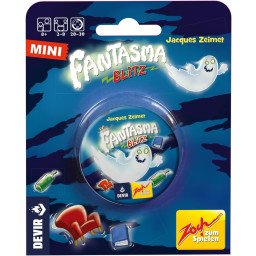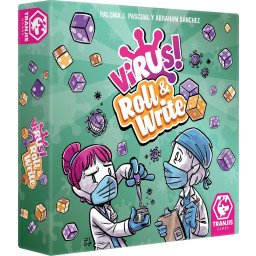What is a board game?
A board game is a type of game that is played on a flat surface and generally consists of a board, cards, tokens (also called meeples), dice, other physical components, and an objective. Players participate by moving pieces, rolling dice, taking turns, or following a set of specific rules to achieve a given objective.
What types of games exist?
Board games can vary greatly in terms of complexity, duration, and style. Some are designed to be quick and accessible, while others are more strategic and can take several hours to complete.
In addition, there are games for different ages and tastes, from family games to more specialized games. Overall, board games offer a social and entertainment experience, encouraging interaction among players.
What makes it memorable?
A board game becomes memorable for various reasons, as different aspects can significantly impact the gaming experience. Here are some elements:
Narrative • Epic moments • Gameplay • Component quality • Appropriate duration • Shared experience • Ease of learning • Visually appealing design.
The most popular in Peru?
Among the most popular games in Peru are the following:
- Catan: A colony-building and trading game where players compete for resources and establish trade routes.
- Dixit: A card and creativity game where players try to get others to guess their cards, based on abstract illustrations.
- Virus: A card game where the goal is to build a healthy human body while trying to infect your opponents with various viruses.
- Dobble: An observation and speed game where players look for matches between symbols on cards.
- Code Names: A game where players try to discover the correct words based on clues given by a teammate.
- Risk: A strategy and world conquest game where players aim to control territories and continents.
- Monopoly: The classic real estate game where players buy, sell, and trade properties to build an economic empire.
Which is the most awarded game?
Catan (also known as "The Settlers of Catan") is widely recognized as one of the most awarded and successful board games in history.
Created by Klaus Teuber, Catan won the Spiel des Jahres award in 1995, one of the most prestigious awards in the board game industry. In addition to this accolade, it has received numerous other recognitions and has been praised for its innovative design and its ability to appeal to players of all ages.
What are expansions?
Expansions in board games are add-ons that are designed to extend or enhance the experience of a base game.
These expansions can offer new elements or mechanics to the game and are a way to keep a board game fresh after players have explored and mastered the original content. They can also be a way to respond to the preferences.
Some common features of expansions include:
- New components: additional boards, cards, or tokens that integrate with the original components and are required.
- New rules: additional rules or mechanics to add variety or strategic depth to the original version of the game.
- New stories: scenarios that expand the game's narrative by adding settings or missions. For example, additional boards.
- New characters: new cards or new game pieces that can integrate with the narrative of the original version.
What are games for children?
Games for children are playful activities specifically designed to entertain and educate kids. These games often feature simple rules, short playtimes, and visually appealing elements, thoughtfully crafted to suit children's cognitive.
There are various types of games for children, including:
- Educational board games: Teach concepts such as numbers, letters, shapes, and colors through play.
- Simple strategy board games: Help develop critical thinking and decision-making skills.
- Memory games: Improve visual memory and concentration.
- Role-playing games: Stimulate imagination and social skills, allowing children to explore various roles and scenarios.
- Physical games: Are designed to enhance coordination and physical ability.
When choosing a game for children, it is important to consider the recommended age, the child's interests, and the learning or development goals.
How is a board game made?
Creating a board game involves several essential steps. First, the central idea of the game is defined, including its theme, objectives, and basic mechanics.
Then, rules are developed, prototypes are created, and tests are conducted to adjust the balance and fun of the game. After perfecting the design and rules, the visual components such as the board, cards, and pieces are designed.
Finally, the game is produced, packaged, and distributed. This process requires creativity, planning, and many tests to ensure that the game is entertaining and engaging for players.
What do games teach us?
Games teach us valuable life and cognitive skills. They encourage strategic thinking, problem-solving, and decision-making. Moreover, they enhance social skills such as communication, patience, and teamwork.
Games also allow us to practice resource management and both short-term and long-term planning. On an emotional level, they teach us to handle both success and frustration, promoting resilience and respect for other players.
Who designs board games?
Board games are designed by game creators, known as game designers. These professionals combine creativity, mathematics, and psychology to create balanced and enjoyable gaming experiences.
Game designers work on the concept, rules, mechanics, and components of the game, often collaborating with artists and illustrators for the visual aspect. Their goal is to create games that offer interesting challenges, promote social interaction, and provide enjoyment to players of all ages.
What is the purpose of a game?
The primary function of a board game is to provide entertainment and encourage social interaction among players. Additionally, it may have educational purposes, such as developing cognitive, strategic, mathematical, and linguistic skills, as well as promoting teamwork and improving decision-making. Board games offer a unique form of fun that combines mental challenge with social engagement.
The benefits of games?
Board games offer a wide range of benefits. They stimulate strategic thinking and problem-solving, improve social skills, and encourage communication and cooperation among players. Additionally, they promote informed decision-making and the development of mathematical and linguistic skills. Board games can also be a fun way to reduce stress and strengthen family bonds and friendships. Overall, they provide enjoyment and learning for people of all ages.























































